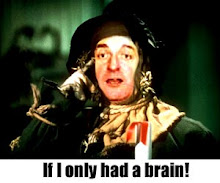Reading the 'Watchmen'
I finished reading 'Watchmen' this morning. I am not really a comicbook fan, but friends have been telling me to read it for years, and I have already read Alan Moore's 'The League of Extraordinary Gentlemen'. He knows his stuff, does Mr Moore. In 'TLOEG' he showed an encyclopedic knowledge of late Victorian literary culture; several Wells' novels collided joyously with creations by Verne, Doyle, Hodgson, etc.. With 'Watchmen' he shows he has digested the Twentieth Century's media just as completely with everything from Pynchon and Vonnegut to the whole comic book tradition.
Though a 'graphic novel', 'Watchmen' has been frequently compared to traditional novels. Certainly it is long, psychological and philosophical. For me though it is just as much cinematic (no doubt the comic book tradition really showing through) with voiceover, visual cues and editing used to great effect. Though I will trundle off to the cinema tomorrow for the adaptation, I already feel like I've seen the movie. And read the book.
Moore's understanding of his medium is awe-inspiring. Small characters and peripheral storylines remained in my mind long after I finished (the 'Bernards', Malcolm, the pirate story), while the slightly mechanical approach of dealing with each major character in each issue somehow works brilliantly as it seamlessly integrates with the major narrative. I challenge anyone to forget Rorschach's furious face near the novel's end.
Which is not to say it is without faults. I am not persuaded by the resolution, though I had heard about it long ago. It is 'comic book' in the most sensationalist sense of the term. Nevertheless there is so much craft on display that I cannot but respect the whole work and understand that this is Moore's ultimate intention, a horrible joke in every sense. (His own characters comment on the lunacy of the solution.)
This is work that could not be done easily in a purely textual medium and may not work completely on the screen. But in the graphic novel format, it works in a way as rich and thought-provoking as the best of either of the other two media. I know I am echoing a lot of what has already been said about 'Watchmen' (and for a long time too), but it really is a showcase for what the graphic novel can achieve.
I am not a graphic novel fan by nature though. Literature and cinema form the foundations of my narrative adventures. This work uses the best devices of both to achieve something neither could probably do on its own. However, I responded to those borrowings (borrowings that to some degree probably gave from the pictorial tradition ultimately). The written word alone probably couldn't do as much, but cinema can come close. Emphasising again that I am not talking about the film adaptation (yet), this work somehow reinvigorated my love for cinema again. (I'd probably suggest this as a text on my scriptwriting course, if I ever get to teach it again.)
Like the Rorschach test so key to the story, a lot of what you get from 'Watchmen' depends on what you see in it. The thing is, Moore (with his artist, Dave Gibbons, and colourist, John Higgins), has put a hell of a lot in there to see.
Labels: Alan Moore, Books, Fantasy, Science Fiction


0 Comments:
Post a Comment
<< Home